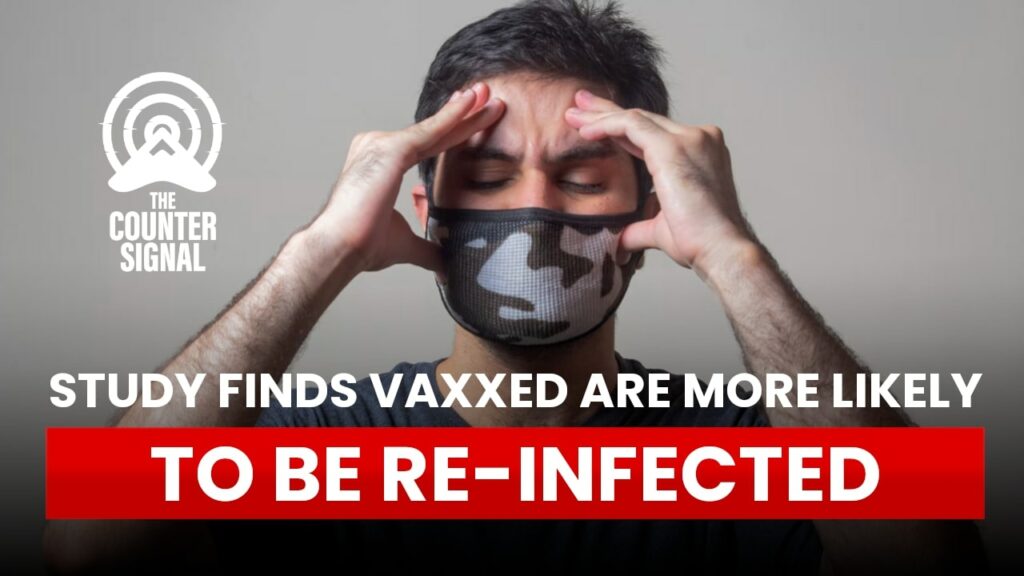A new study indicates that the rate of re-infection of COVID is higher for those who are considered fully vaccinated.

“Surprisingly, two or more doses of vaccine were associated with a slightly higher probability of re-infection compared with one dose or less,” researchers concluded.
In fact, they found the highest rate of re-infection was for 18 to 29-year-olds who’d received two or more vaccines.
However, researchers advised the variance between the groups to be interpreted “with caution” due to the limitations of the study.
Published research now showing that greater number of Covid-jabs = greater chance of Covid infection.
— David Millard Haskell (@DMillardHaskell) August 15, 2022
Could this possibly be why the vaccine status of newly infected Canadians is no longer made public by some gov'ts and health units? https://t.co/OTvQJjUSTg
As per the study, researchers covered over 12 months of data between 2021 and 2022 and more than 11,000 people who’d had COVID. Ultimately, they found that re-infection was “more common than previously thought.”
“Reinfection was observed in 1327 persons (11.5%) during the Omicron period. Of those who had received 1 dose or less of vaccine, 11.7% (1007 of 8598 individuals) were re-infected, compared with 10.9% (320 of 2938 individuals) who had received 2 or more doses. The reinfection rate was highest (475 of 3136 individuals [15.1%]) among those aged 18 to 29 years. Fewer reinfections occurred among older individuals,” researchers report.
“The probability of reinfection increased with time from the initial infection and was higher among persons who had received 2 or more doses compared with 1 dose or less of vaccine. Defining reinfection after 30 or more days or 90 or more days did not qualitatively change the results.”
Indeed, when the vaxxed and boosted PM of Canada and President of the US both get COVID multiple times in mere months, re-infection does appear common.
This study may help to explain why Ontario’s official reporting database stopped showing cases and hospitalizations based on vaccine status as the results fly in the face of the mainstream narrative pushed over the last two years of COVID hysteria.
While the province’s webpage claimed that doing so was to avoid giving the public false impressions, the rates themselves had become unfavourable and disproportional for the vaccinated categories.
Additionally, this study challenges the claim that health authorities told us about ‘hybrid’ immunity being the best type of immunity (which is immunity from vaccination plus infection).
To this point, we’ve reported on a different study suggesting no statistically significant difference between hybrid immunity and natural immunity.
Of course, none of this has stopped Canada’s Chief Health Officer from continuing to tell people to get ‘up-to-date’ vaccinated – including 6-month-old babies.
Get the latest info and updates on #COVID19 on the https://t.co/yXjxcUxgjW #coronavirus disease website, including links to the current situation & trends; public health info & what to do if you feel sick; vaccines & travel, etc. https://t.co/IZt05ChWwV pic.twitter.com/rIwtZl0zmn
— Dr. Theresa Tam (@CPHO_Canada) August 15, 2022
Thankfully, with this latest study that calls into question the efficacy of hybrid immunity, it appears the science might be catching up to the stats. As for when Canada recognizes this, it is anyone’s guess.









